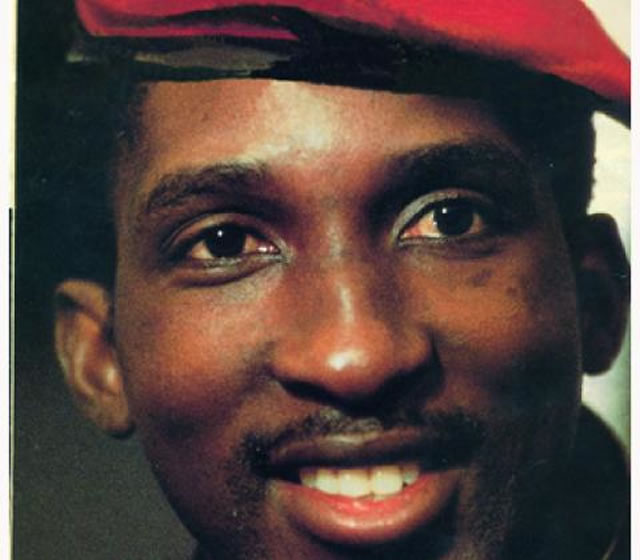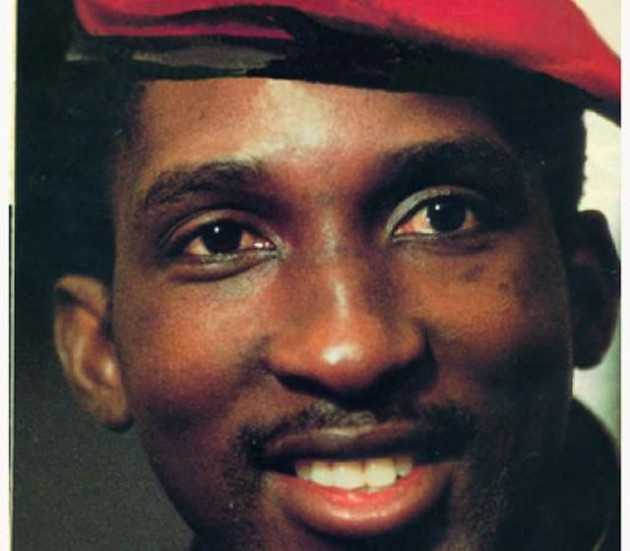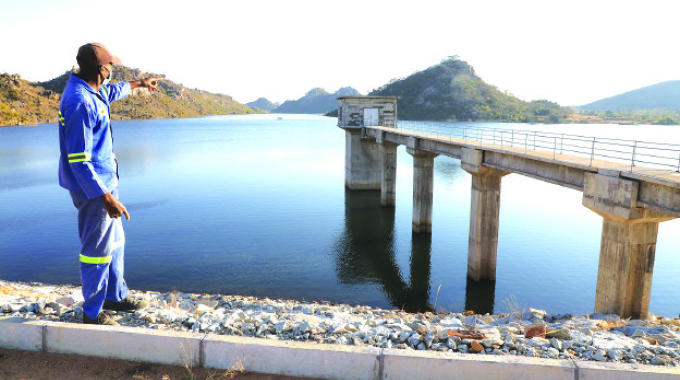Speaking truth to power

Reason Wafawarova
Power can be the way to a people’s freedom, the way to a fully democratised society and it is indeed the key requirement for the realisation of any form of emancipation. But power in the wrong hands can be disastrous, and the greatest challenge for any head of state is to find trustworthy hands in which to place vested power for the day to day running of a nation.
The scandal of small men sitting in massive chairs is the sad story behind the derailing of many revolutions, and one can easily pick the Sankara-led Burkinabe revolution that ended abruptly with the cold blood assassination of the 36-year-old legend in 1987 or recently the callous killing of Col Muammar Gaddafi to end his prosperous Jamahiriya revolution.
When great visions are presided over by short-sighted and selfish men with tiny minds harbouring huge egos and unquenchable political ambitions the only outcome possible is the derailing of the noble cause, and the triumph of mediocrity.
We have a revolution in the making in Zimbabwe, but it is hard to believe that some in our Government are revolution makers as things stand and we cannot be as optimistic as to be stupid in our expectation that Zimbabwe is heading towards full independent nationalism.
What we have in place are attractive political benchmarks in regards to land ownership and how we wish to control our other national resources and Zanu-PF successfully went to election 2013 dangling these attractive promises to the electorate.
We will be distrusting common sense if we for once believe that principle was the guiding factor in this electoral campaign, or that the quest for power was only a peripheral necessity in pursuit of greater principle.
To many politicians, the role of the voter is to ratify the ascendancy of a political party to power, and thereafter the voter must put up with endless explanations and excuses as the journey towards yet another election begins.
Now there is more talk about election 2018 when the party is still to deliver on election 2013 promises.
It is over a 100 days now after the July 31 election, and apart from a few compromise-oriented statements from Francis Nhema, there is little to give hope to the prospect that the country’s economy is set to realise US$1,46 billion through indigenisation by August 2014, if we are to be on track to achieve the promised US$7,3 billion by 2018.
Rather we are all compelled to follow the sideshow of Zanu-PF’s dramatic if not chaotic internal elections at provincial level, something that should hardly capture national attention if the preoccupation in the minds of our politicians was what matters most for the people of Zimbabwe — fixing the economy.
Surely, you do not run a revolution like the one we have made in Zimbabwe with the help of slouching novices and political midgets sitting in hot seats.
President Mugabe once said you need “Madoda sibili” or “real men”.
AgriBank must be expecting something towards the promised US$2 billion over the next five years for the bank to capacitate our agricultural productivity, and we all know that the money must come from the “idle value of empowerment assets unlocked from parastatals, local authorities, mineral rights and claims”, according to the election manifesto.
Just like our civil servants are madly pursuing the promised increase in salaries our farmers must vigorously demand that we quickly identify whatever it is that has to be “unlocked”, with whoever is with the unlocking keys doing what is expected of them, so we can swiftly fund the hardworking farmer for the betterment of our nation.
We cannot keep enduring the unpleasant voices of mockers deriding our nation for relying on food imports from countries the likes of Malawi or Zambia and by saying this no admiration for Jacob Zuma’s attitude towards our neighbours is intended.
We have to see something happening towards IDBZ as the bank was promised US$3 billion towards the development of our infrastructure in the coming five years. Surely, there should have been good basis for such a promise and Minister Chinamasa must be in the know about that one.
We heard so much about the 59 Community Share Schemes, as well as the 133 Employee Empowerment Schemes set up over the same period and that was obviously impressive. However, the silence over what is happening in these projects, and the sudden inaction over the setting up of more similar schemes does not speak well for the welfare of the revolution.
As we were heading towards the election the CABS-administered Youth Empowerment Fund was said to have raised US$6 million of which US$4 million had been disbursed already, but we have not heard much else about this fund after the election. We also have not heard much about the Stanbic Wealth Creation Fund, which by election time was said to have disbursed US$5 million to some 300 youths.
Not much has been heard either about the CBZ- administered fund, also said to have disbursed US$746 000 to 500 youths by election time.
What has killed this momentum? Or was the momentum ever there in the first place? Or is it just that the media is not reporting on these issues and perhaps more millions are silently going into the hands of youthful entrepreneurs? One would hope that were the case.
We have a duty to speak truth to power, especially when power is in the hands of men and women of tiny minds that are smitten by huge egos and massive ambition — people whose whole idea of vision is some provincial post within Zanu-PF or acquiring the rather meaningless title of Honourable So and So by virtue of being parliamentarians. As Border Gezi once said, “nyika haitongwe nekutengerana hwahwa”. You cannot run a country on pub bribes.
This writer does not find the happenings in the Zimbabwe revolution mind-boggling at all. Like schools, political parties are institutions of indoctrination designed to impose loyalty and obedience — even obeying the absurd, as people like Arnold Tsunga, Jonathan Samukange and Munyaradzi Kereke were being forced to do at election time by their respective political parties. We saw each of the three attaining victory by simply challenging power with the truth.
Far from creating revolutionaries or democrats, political parties are notorious for playing an institutional role in a system of control and coercion.
Once you are accommodated in party corridors of power you are initiated into ways that support power structures and if you are Zanu-PF you are oriented towards alternative hierarchical power preferences and you are told that without careful consideration of the importance of the gods running the show your future is as good as doomed.
You are taught quickly what is expected of you as a party cadre in the power structures and before long you are more than aware of what questions to ask and those never to be asked.
You quickly learn the nuances of the chef culture, the strategic importance of pleasing those higher than yourself, and you quickly learn that the role of the masses is limited to the vote, with all other things left to the diktats of power.
You quickly learn the art of pacifying the masses through rhetoric and endless promises.
While Morgan Tsvangirai’s party is a brazenly privatised entity aptly named after the leader, there are others in Zanu-PF who view themselves as private owners of the revolutionary party, and it is sad to see these people so determined to manipulate the people’s will.
There is a compelling instinct that makes one believe that some of these leaders are so blissful in their ignorance that they honestly believe that the party leadership is the custodian of people’s opinion; that the Politburo cannot sin and cannot be questioned. Some have even come to the point of believing that the Politburo is entitled to obedience even by the legislature or by the courts and surely there must be an explanation around that kind of nonsense.
There is a generally accepted belief that the Politburo trains people who rule the country, and that the middle class provides for it those that will be tasked to make Government work, or at least to provide the impression that Government works.
The MDC-T is convinced that Government does not work. No doubt they are right. They just proved it when they were part of it between 2009 and 2013.
But this Zanu-PF Government is not exactly working either, unless of course some well-wisher injects into our economy some form of welfare funding, a concept whose side effects Zanu-PF is clearly aware of, but would put up with if the likes of the IMF are willing to indulge.
Zanu-PF cannot rely on revolutionary rhetoric for survival. The party cannot just beat the people on the head with revolutionary platitudes. If the party is indeed revolutionary there is no need to for it to bombard everyone with the nobilities of a revolution. The party simply needs to act and behave in a revolutionary manner and we know that is hardly happening at the moment.
The more there is need for talk about a revolution the less revolution there is and what we really want now are the austerities and sacrifices needed on the part of the country’s leadership, if at all Zimbabwe’s economy is to come out of the doldrums.
Cuts on salaries and privileges for those in elected positions are needed more as a sign of instilling confidence for all others, and less as a need to boost national revenue. A revolution is acted more than it is lectured, and precisely this is why our Information Ministry must not be considered key in spearheading the national revolution, necessary as the role of the ministry certainly is.
A minister with an entourage driving in super-expensive cars cannot meaningfully convey a message of revolutionary empowerment when the agenda of his coming is to talk about a US$50 000 Constituency Development Fund budgeted for an entire year. The irony is as brazen as to ignite a real revolution, sorry a total revolt. It is unbearably provocative.
This writer is more than aware that if you do not support the interests of the wealthy and those in power you cannot last long, as everyone else in the political corridors of power also knows. But those so reckless with power do not last long either.
A true revolution cannot survive in a propaganda framework that has the effect of silencing the aspiration of an entire nation. That cannot be allowed to happen.
We cannot allow politicians to coerce our intellectuals and our media into playing the inglorious role of commissars, and this is precisely why this column will not play commissar by giving the people an anaesthetic while they get raped by rogue politicians masquerading as custodians of the national interest, costly as the resolve may be.
We cannot be complicit in the betrayal of a people’s hope by propagating the falsehoods in the service of powerful interests.
The fact that the MDC-T cannot be an alternative ever in our lifetime is no licence for Zanu-PF to take people for granted.
Zimbabwe we are one and together we will overcome. It is homeland or death!
- Reason Wafawarova is a political writer based in SYDNEY, Australia.







Comments